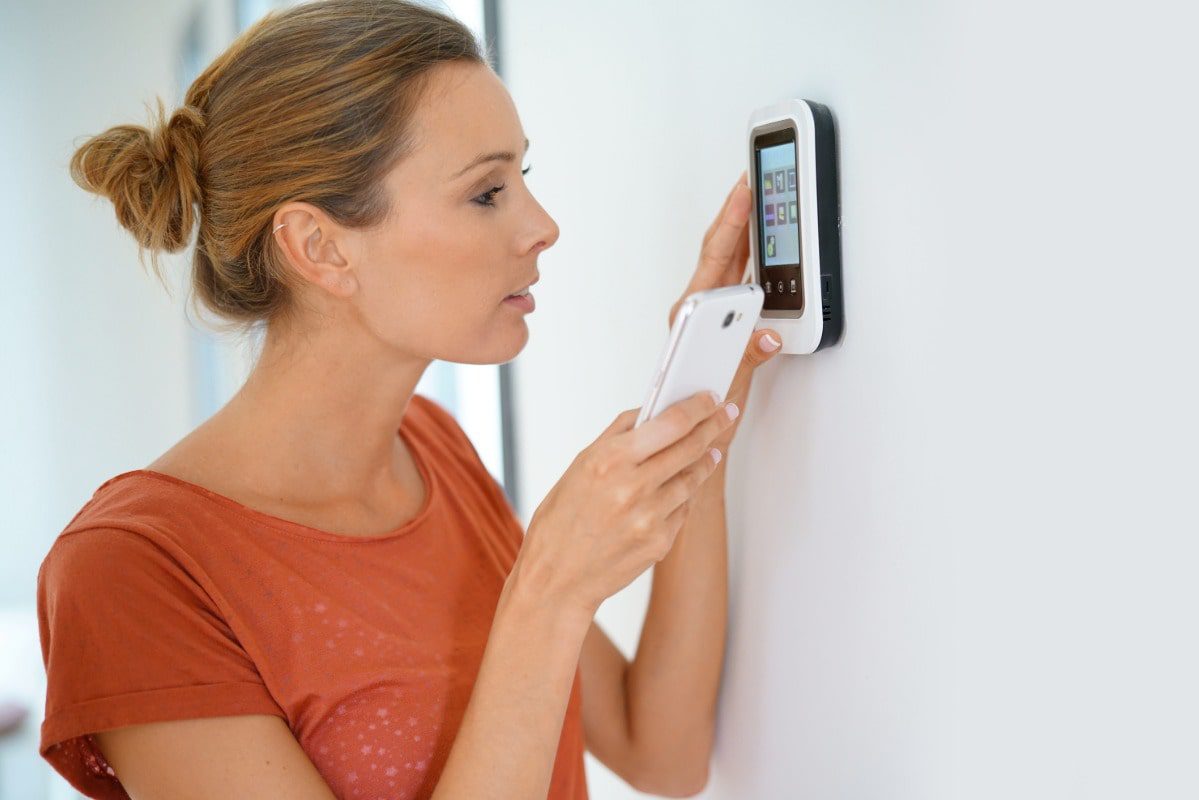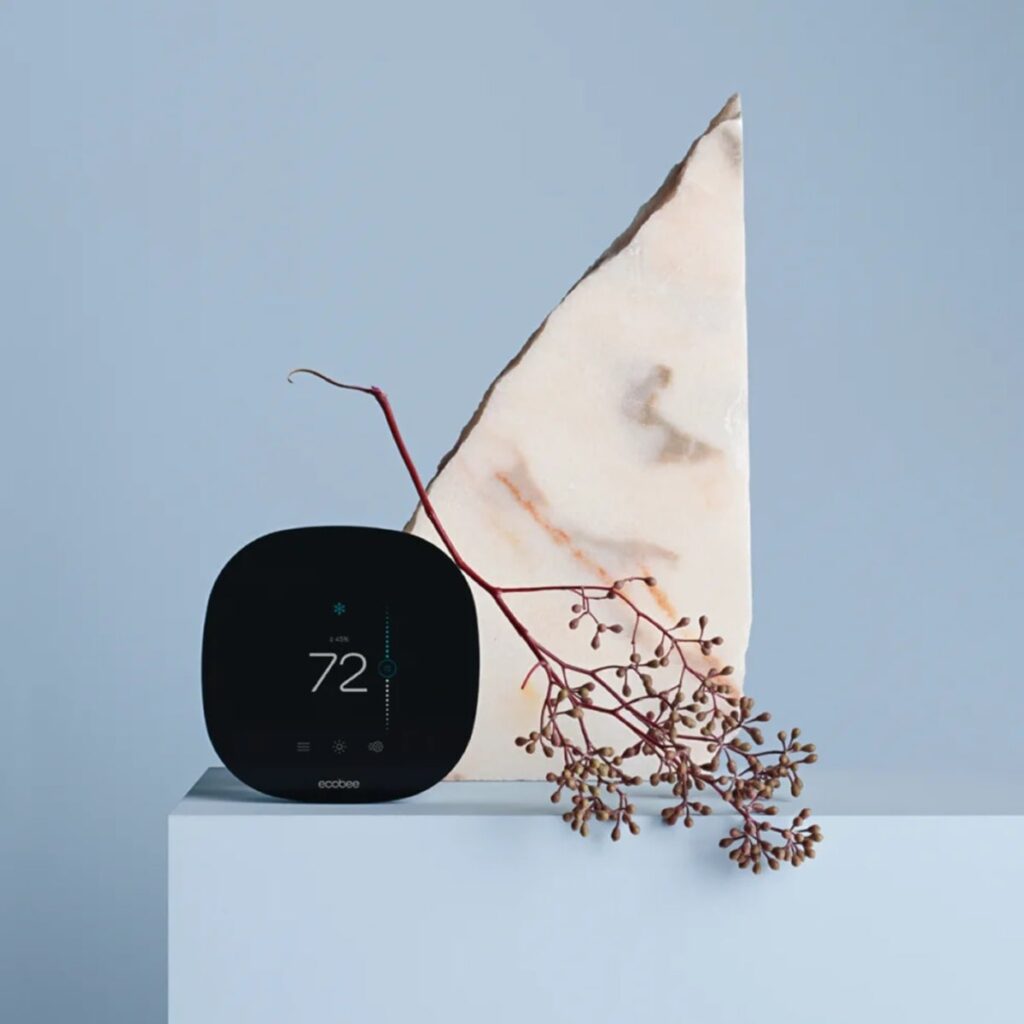Top 4: The Best Landlord Thermostat Options

Remote-controlled thermostats, also called programmable or smart thermostats, have come a long way in the past five years. These devices make it easy for anyone to monitor and maintain indoor temperatures, whether you're inside your home or not, making them a great choice when researching landlord thermostat options.
Why you should have a controlled thermostat in your rental
With a remote-controlled thermostat, you can track energy usage, view monthly utility bills and adjust heating and cooling based on when occupants are home. One study conducted by Nest, a leading manufacturer in smart thermostats, claimed their customers saved an average of 12% on heating costs and 15% on cooling. However, this number will vary based on your local climate and particular thermostat habits.
Many of these smart thermostats are controlled via a phone app, meaning you can adjust the temperature and check in on your rental home from anywhere with an Internet connection. This feature will be valuable in the months to come, as COVID-19 limits landlords from checking in on tenants and their properties, further making smart thermostats the best choice out of the many landlord thermostat options available.
Top four landlord thermostat options
If you’re interested in seeing what smart thermostats have to offer, check out the top four landlord thermostat options below.
1. Ecobee Smart Thermostat

This device has Amazon's Alexa built in, so you can control it with voice commands and your phone. The smart sensor, one of the product's marquee features, can sense occupancy and adjust the temperature accordingly. It also prioritizes comfort in highly frequented areas, such as the living room and bedrooms. This results in increased savings without putting your tenants' happiness in jeopardy.
The Ecobee comes with five pre-programmed settings based on how much energy you'd like to save. Once you select an option, the thermostat will schedule everything for you. This product can also take advantage of electricity rates in your local area by pre-cooling and preheating properties at the times of day when electricity prices are at their lowest.
2. Nest Learning Thermostat

As mentioned above, Nest is one of the top performers in the smart thermostat industry. With this device, you can ensure proper ventilation and airflow in your rental home and cut down on humidity, which prevents the growth of mold and mildew, all without having to enter the unit. You can also save significantly on energy costs, which is ideal for landlords who are responsible for the heating bill.
The Nest Learning Thermostat can program itself after one week and is able to automatically adapt to anyone’s schedule. It also generates a daily energy report, showing you how much energy was used and offers tips on how you can save even more.
3. Honeywell Lyric T5

This thermostat is truly smart in that it can integrate with other services like Apple's HomeKit and Amazon's Alexa. Similar to the Nest thermostat, this device can automatically determine your property's heating and cooling needs by monitoring usage and adjusting as needed. Therefore, after installation, you don't need to mess with any confusing controls.
What's great about the Honeywell is that it sends you alerts to remind you to change your filter and informs you when there are extreme temperatures in the home. Plus, it's Energy Star Certified, meaning the product meets federal efficiency standards and contributes to significant energy savings.
4. Emerson Sensi Thermostat

If you're worried about installing your new thermostat, the Emerson Sensi has you covered. Once you download the app, it will walk you through a simple, step-by-step process. You can also access dozens of video tutorials. Like the Honeywell, this device can work seamlessly with smart home systems like Amazon Alexa, the Google Assistant and Apple HomeKit.
Use the app to program a heating and cooling schedule that works with your tenants' lifestyles and follows the local weather. Once the thermostat is in place, you'll receive regular reports that allow you to monitor energy usage and determine if your home has extreme temperatures or humidity.
Include appropriate lease clauses
If you plan to install a smart thermostat in your home, be sure to outline its usage in your lease. State who has control over the device and must maintain its upkeep. If you plan to adjust the temperature and monitor everything yourself, you'll need to let your tenants know.
Likewise, if your renters are responsible for heating and cooling costs, you may give them the responsibility of upkeep and walk them through how to use the accompanying software.
Follow both local and state laws
If you plan to control the heating and cooling in your home, be sure to brush up on state and local laws. This will also affect which landlord thermostat options you will have. Some municipalities have regulations around when you must turn the heat on, typically around mid-October. You must also maintain a minimum temperature in your rental homes, generally around 68 degrees Fahrenheit. Other areas, especially in the South, will specify a deadline for activating cooling systems.
Remember, all states and local municipalities are different, so you'll want to research these laws beforehand. If you have any questions, seek out the advice of an attorney.
Don't overstep
As a landlord, you want to keep your properties in tip-top shape even when you're not around. With the help of smart devices, you can find landlord thermostat options to gain peace of mind by knowing precisely what's going on with your heating and cooling systems — without having to enter into your homes every week.
The information contained in this article does not, and is not intended to, constitute legal or financial advice. Readers are encouraged to seek professional financial or legal advice as they may deem it necessary.
